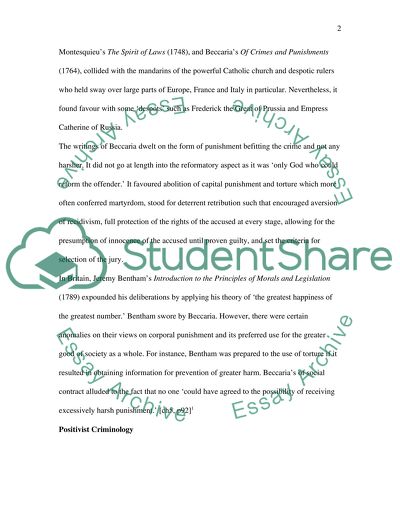Classical and Positivist Views on Crime Book Report/Review. Retrieved from https://studentshare.org/philosophy/1515394-classical-and-positivist-views-on-crime
Classical and Positivist Views on Crime Book Report/Review. https://studentshare.org/philosophy/1515394-classical-and-positivist-views-on-crime.


